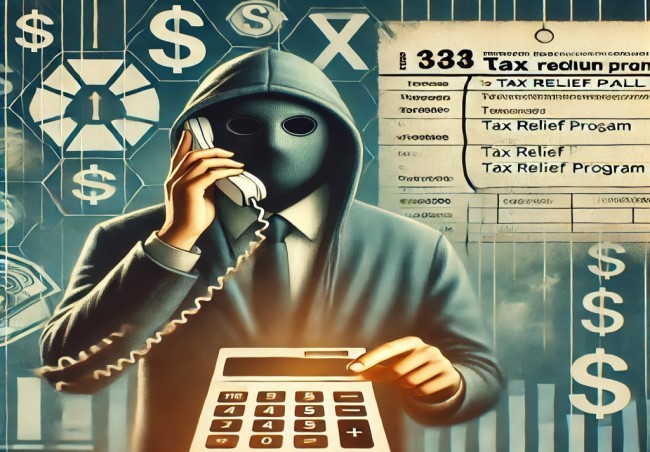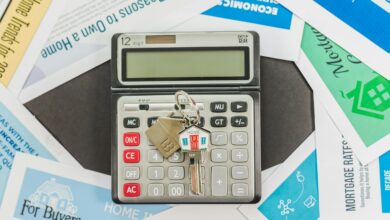Zero Tax Code Program Erica Dawson: Unmasking the Tax Scam
How to Protect Yourself from the Zero Tax Code Program Scam and Other Tax Fraud Schemes

The Zero Tax Code Program, touted by Erica Dawson, is a tax scam aimed at tricking individuals into believing they can have their back taxes forgiven. This fraudulent scheme uses misleading claims and fictitious government affiliations to deceive taxpayers. It’s crucial to stay vigilant and consult trusted tax professionals for legitimate tax relief options.
Introduction
Tax scams have become increasingly sophisticated in recent years, targeting unsuspecting taxpayers with promises of substantial tax relief. One such scheme, the Zero Tax Code Program, has been linked to Erica Dawson. This article delves into the mechanics of this scam, offering insights on how to identify and avoid such fraudulent schemes and guiding legitimate avenues for tax relief.
Understanding the Zero Tax Code Program Scam
The Scam Mechanics
The Zero Tax Code Program, often propagated through automated calls, claims taxpayers can have their back taxes reduced or forgiven entirely. These calls, usually made by someone identifying as Erica Dawson, lure victims with promises of a new, government-sanctioned tax relief program. However, the IRS has confirmed that no such program exists, and these calls are part of a widespread scam.
Common Tactics Used
- Robocalls: Automated messages claiming immediate action is required.
- Fictitious Authorities: Impersonating IRS officials or citing non-existent government departments.
- Urgency and Threats: Pressuring victims to act quickly to avoid penalties.
Recognizing the Red Flags
Signs of a Scam
Understanding the common signs of tax scams can help you protect yourself. Here are some red flags to watch out for:
- Unsolicited Calls or Emails: The IRS usually contacts taxpayers through mail, not phone or email.
- Immediate Payment Requests: Scammers often demand immediate payment via unusual methods such as gift cards or wire transfers.
- Too Good to Be True Offers: Promises of complete tax forgiveness or substantial refunds that seem unrealistic.
Legitimate Tax Relief Options
IRS Programs
While the Zero Tax Code Program is a scam, there are legitimate programs offered by the IRS to help taxpayers manage their tax debts:
- Offer in Compromise (OIC): Allows eligible taxpayers to settle their tax debt for less than the total amount owed.
- Installment Agreements: This enables taxpayers to pay their tax debt in smaller, more manageable amounts over time.
Seeking Professional Help
Engaging a qualified tax professional can provide valuable assistance in navigating tax issues. Ensure your tax advisor is accredited and has a good track record.
The Impact of Tax Scams
Financial Consequences
Falling victim to a tax scam can have severe financial repercussions. Scammers may steal your personal information, leading to identity theft, or trick you into making difficult-to-recover payments.
Emotional Toll
Beyond financial loss, tax scams can cause significant stress and anxiety, as victims often face harassment from scammers and uncertainty about their financial future.
Protecting Yourself from Scams
Practical Steps
- Verify the Source: Always verify the legitimacy of any tax relief offer with the IRS or a trusted tax professional.
- Do Not Share Personal Information: Be cautious about sharing personal or financial information over the phone or online.
- Report Suspicious Activity: If you receive a suspicious call or email, immediately report it to the IRS.
Educating Yourself
Your best defense is staying informed about the latest scams and how they operate. The IRS regularly updates its website with information on common scams and tips for protection.
Conclusion
The Zero Tax Code Program scam, linked to Erica Dawson, is just one of many fraudulent schemes designed to exploit taxpayers. By recognizing the signs of a scam, understanding legitimate tax relief options, and staying vigilant, you can protect yourself from financial harm. Always consult a trusted tax professional or the IRS to verify any tax-related information.
Final Thoughts
Tax scams are a persistent threat, but you can safeguard your financial well-being with the proper knowledge and precautions. Remember, if an offer sounds too good to be true, it probably is. Stay informed, stay cautious, and always seek professional advice when dealing with tax issues.
This comprehensive guide provides the necessary information to recognize and avoid the Zero Tax Code Program scam and other tax fraud schemes. Following these guidelines ensures financial safety and maintains peace of mind when managing your tax obligations.



